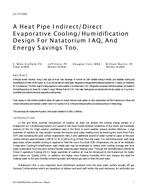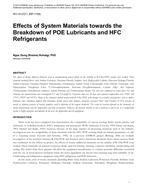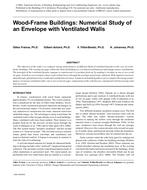The R-2000 Home Program technical criteria require the installation of a controlled mechanical ventilation system . The purpose of this system is to ensure adequate air quality and to minimize the potential for excessive negative pressure within the building envelope relative to the exterior. Field testing was conducted to determine compliance with the technical criteria and to document the indoor air quality characteristics of R-2000 homes. Ventilation system monitoring procedures consisted of measuring the installed ventilation system airflow rates in the homes. Indoor air quality monitoring consisted of measuring formaldehyde, radon, and nitrogen dioxide in the homes. The mean airflow capacity of the ventilation systems of all the homes monitored was equivalent to 0.5 air changes per hour (ach). The average air change rate, natural plus mechanical ventilation, for the R-2000 homes tested by the passive PFT method was 0.37 ach. Average concentrations of formaldehyde have decreased from 0.069 ppm in 1984 and 1985 to 0.045 ppm in 1987 with revisions to the program ventilation guidelines. The geometric mean of the radon progeny measurements was 0.006 Norking Levels (NL) in 1985 and 0.003 NL in 1987. As expected, radon levels varied location, not by home construction method or heating system type.
Units: Dual
Citation: Symposium, ASHRAE Transactions, 1987, vol. 93, pt. 2, Nashville, TN
Product Details
- Published:
- 1987
- Number of Pages:
- 7
- File Size:
- 1 file , 670 KB
- Product Code(s):
- D-NT-87-07-1


